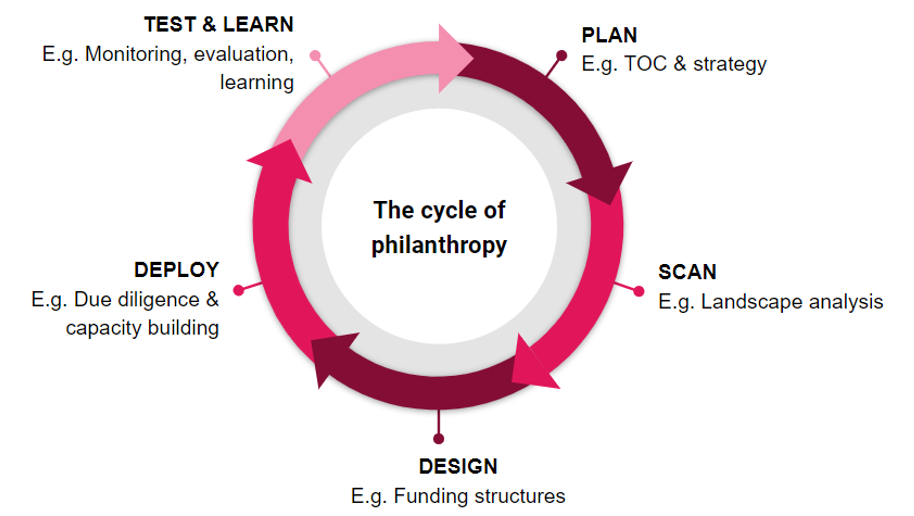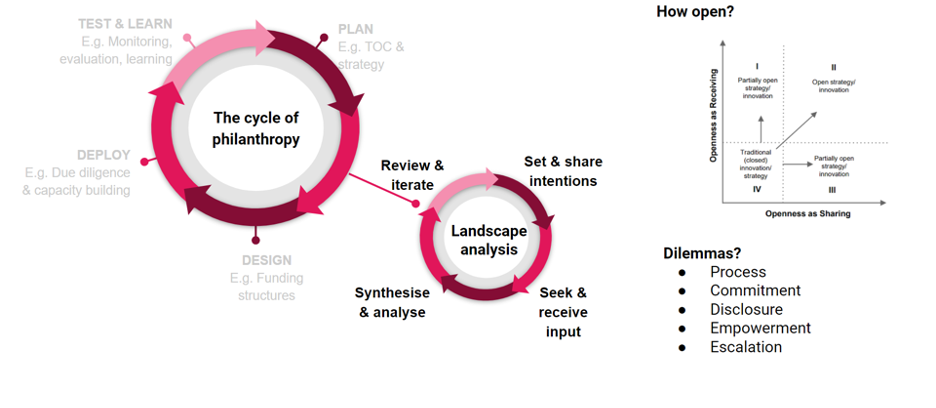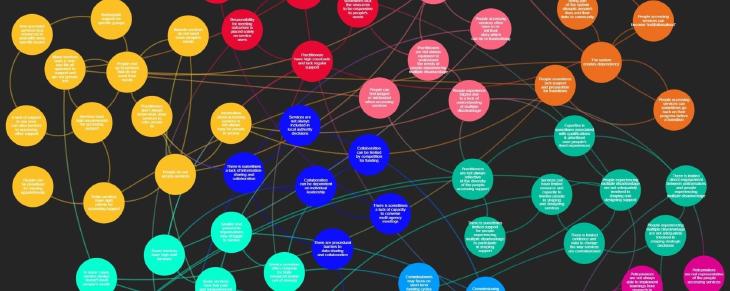New Philanthropy Capital is a think tank and consultancy for the charity sector. They help charities, foundations, philanthropists, impact investors, social enterprises, corporations, and the public sector to maximize social impact in the lives of the people they serve.
We are funding development and implementation of resources to foster open philanthropy.
Why We Partner
As it currently is performed, philanthropy is doomed to failure—other than to fully employ those working in the philanthropic sector. There are insufficient resources to tackle the scale of the challenges it faces, and the organizations resourced through philanthropy compete for scarce funding.
In this world, effective programs and interventions are treated like competitive advantages—hoarded, protected, kept secret and away from the competition. Benchmarking results is difficult, because knowledge about what works is treated as a commercial asset. Funders fuel these behaviors through transactional funding processes that pick winners, punish losers, and are unaccountable, unchallenged, and uninspiring.
What is Open Philanthropy?
For every stage of a philanthropy operating cycle, there is a closed and an open approach, and alternatives in between. We seek to find or develop open approaches for each element, prove their value, and accelerate their adoption. Below is an outline of some of the key stages / processes in a philanthropy cycle.

the standard philanthropy cycle
Our aim is to prototype open versions of these existing processes within a one year initial program, using this prototyping both to learn and demonstrate what open philanthropy can look like, and to use those open practices to do real philanthropy within our selected focus areas.

opening the cycle
Impact
On an immediate timeframe, we hope to demonstrate to funders and operating partners of the power of transparency and sharing information.
On a long-term basis, we believe that this will not only reduce the burden of due-diligence, provide for better monitoring and evaluation of grantmaking decisions, but also identify trends in funding and focus funding where the need is strongest.
